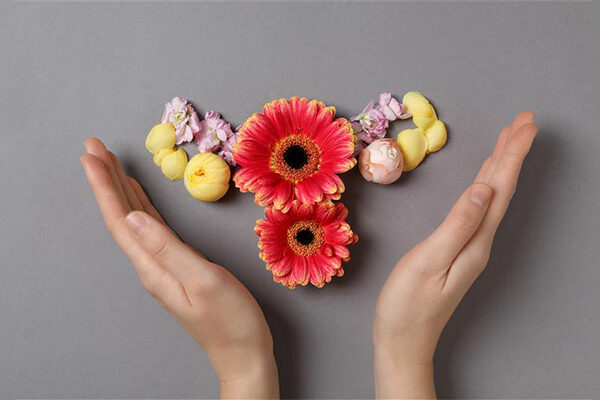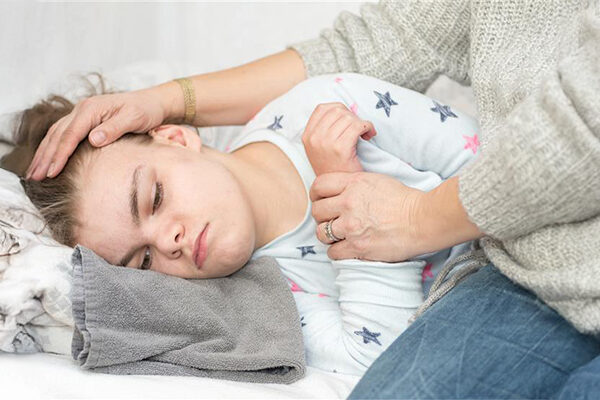Last Updated on January 9, 2024
Navigating the challenges of Interstitial Cystitis (IC) can be a demanding journey, as the persistent bladder pain disrupts daily life. While stress doesn’t cause IC, it can trigger flares, amplifying discomfort. Acknowledging that every flare will eventually subside is crucial, and dwelling on it only prolongs unease. Managing physical and mental stress is key to minimizing flare intensity. Interstitial cystitis self-care plays a pivotal role in this process. Understanding stressors and learning how to defuse them can significantly alleviate pain levels, empowering women to embody strength and resilience in the face of this challenging condition.
In this blog, we will discuss interstitial cystitis in detail, including interstitial diet and interstitial cystitis self-care.
Interstitial Cystitis Self-Care
Interstitial cystitis can be a challenge to deal with. Women diagnosed with interstitial cystitis also face mood fluctuations and symptoms that may affect their mental health as well. It is important to recognize the symptoms, keep track of your condition, and figure out ways to help manage interstitial cystitis to some extent. Some of the effective and tested techniques for interstitial cystitis self-care are mentioned below.
- Stress Management Techniques: Stress is the root cause of almost all medical conditions. Likewise, it plays a great role in exacerbating the symptoms of interstitial cystitis or bladder pain syndrome. Indulging yourself in activities like painting, coloring or reading can significantly help reduce stress.
- Physical Exercise: Having a good physical exercise routine is essential for overall wellbeing. It improves the immune system functioning and keeps infections such as interstitial cystitis at bay. However, it is important to note that not all exercises are recommended for interstitial cystitis. Only low-impact ones are recommended.
- Bladder Training Exercises: These training exercises help gain control over the frequency and urgency of urination by helping you gain control over your pelvic floor muscles. Moreover, delaying the time to use the restroom and mental exercises to distract yourself and train your mind is important. Additionally, pelvic floor exercises called Kegel exercises help control urine flow.
- Try Sitz Bath: A sitz bath is when you sit in warm water to relief pain in your lower body including bladder pain, hemorrhoids, etc. It provides relief to the pelvic floor muscle.
- Opt for Loose Clothing: Anything that puts pressure on the abdomen such as a belt is a big no. Try wearing clothes that are easy on the abdomen like loose fit pants, and baggy shirts.
- Healthy Sleep Routine: It may not directly help in alleviating the symptoms but can certainly help improve overall health. A good sleep routine helps the immune system work properly and allows the body to heal and repair itself.
- Journaling: Being mindful of your eating habits can significantly help relieve the symptoms of interstitial cystitis and allows you to declutter your mind of the stress associated with the condition.
- Join Support Groups: Dealing with interstitial cystitis alone can be so taxing. It is important to have a circle of friends or join support groups where you can discuss your condition openly without the fear of judgement.
Adopting some of these interstitial cystitis self-care techniques can greatly help in improving your wellbeing and alleviating the symptoms.
What Causes Interstitial Cystitis?
Interstitial cystitis or bladder pain syndrome does not have a well-defined cause; however, multiple factors might be involved. A defect in the protective layer of the bladder called epithelium might be the cause or a leakage in the epithelium that serves as a gateway for toxic substances in urine to disrupt the bladder wall.
Other possible causative factors include:
- Autoimmune reaction
- Heredity
- Infection
- Allergy
How is Interstitial Diagnosed?
There is no one test to diagnose interstitial cystitis or bladder pain syndrome. It is always a combination of tests that help in diagnosis of interstitial cystitis. These include:
- Urinalysis: It helps to identify certain germs, cells and chemicals present in the urine.
- Urine Culture: To check for bacterial growth.
- Cystoscopy: To examine the bladder and look for structural abnormalities.
- Bladder wall biopsy: To check for cancerous and abnormal cell growth.
Symptoms of Interstitial Cystitis
Common symptoms of interstitial cystitis include:
- Pain
- Frequent urination (up to 60 times/day)
- Urgency
- Chronic pelvic pain
The Role of Interstitial Cystitis Diet in Improving the Symptoms
A balanced diet is crucial to improving the symptoms of any condition, be it interstitial cystitis or any other medical condition. The nutrients in different food groups help strengthen the immune system, heal wounds, and keep the blood flowing in addition to other functions. However, some food items contain bladder irritants which must be avoided to prevent interstitial cystitis flareup.
Foods that are good for interstitial cystitis or bladder pain syndrome include:
- Fruits: Bananas, avocados, blueberries, melon, pears, apricots, and dates are some fruits that are good for women suffering from interstitial cystitis.
- Vegetables: Celery, asparagus, broccoli, bell pepper, and eggplant are some of the vegetables that help improve the symptoms of interstitial cystitis.
- Grains: Oats and rice are a good option to help relieve interstitial cystitis symptoms.
- Nuts: Almonds, walnuts, cashews, and pistachios are also considered some preferrable foods that can help manage symptoms of bladder pain syndrome.
- Herbs: Herbs such as garlic, thyme, and rosemary.
These are some of the foods to incorporate in interstitial cystitis diet that one should incorporate in their daily routine to improve the symptoms.
Clinical Trials for Women’s Health
Revive Research Institute is a strong advocate of women’s health and puts a lot of focus on improving the lives of women undergoing various medical conditions. We conduct phase I to phase IV clinical trials, from testing the safety and efficacy of a drug or medical device to evaluating its post-release effects. Likewise, we are conducting clinical trials for interstitial cystitis to help women manage their symptoms effectively.
End Note
Interstitial cystitis, also known as bladder pain syndrome, is a common yet painful condition that greatly impacts a woman’s life. The symptoms range from bladder pain to pelvic pain and increased frequency of urination. Moreover, interstitial cystitis diet plays a crucial role in improving the symptoms. Along with medications, interstitial cystitis self-care is also important, focusing on one’s mental health, incorporating physical activities in daily routine and managing stress are some of the handy techniques that can help.




